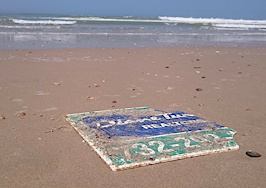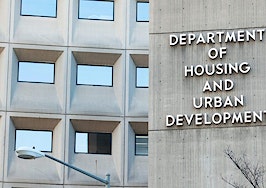Help could be on the way for needy Texans still reeling from the devastating impact of Hurricane Harvey. The United States Department of Housing and Urban Development (HUD) announced on Monday the approval of a $5 billion disaster recovery plan, which will be funded through the department’s Community Development Block Grant-Disaster Recovery Program.
“The Trump Administration is committed to helping Texans impacted by Harvey to rebuild their homes and their lives,” HUD Secretary Ben Carson said in a statement. “As the state now turns to the long-term recovery of its communities, Texans can be sure that HUD will be there to help in any way we can to make the state whole again.”
Components of the recovery plan include:
- $1.1 billion to help homeowners with rehabilitation and reconstruction projects
- $275 million to allow eligible homeowners an opportunity to sell their damaged home to a local government
- $250 million for the rehabilitation, reconstruction and new construction of affordable multi-family rentals
- $100 million to reimburse homeowners for certain out-of-pocket expenses incurred during the home repair process
- $73 million for immediate temporary repairs to certain homes
- $413 million for infrastructure repairs and enhancements as part of a long term recovery plan
- $100 million for an economic revitalization plan that proves up to $250,000 to small businesses in exchange for job creation or retention
- $137 million for local disaster mitigation in impacted areas
- $2.3 billion to be split by the City of Houston and Harris County to address unmet recovery needs
- $251 million for state programs associated with the recovery
U.S. Senator John Cornyn, a Republican from Texas, was one of the lawmakers that helped secure the funding. He applauded its approval in a statement.
“Ten months after Hurricane Harvey devastated Texas, there’s no question our hardest hit communities are still rebuilding,” Cornyn said. “The approval of this targeted plan to help those who need it most is great news for Texans still working to return to normalcy after this horrific storm.”
Block grant funding from HUD is at the center of the legal fight over the Affirmatively Furthering Fair Housing Rule (AFFH), which requires state and local governments take steps to address segregated housing patterns and complete an assessment of fair housing, as a condition of receiving these grants.
Despite HUD’s current attempt to delay the rules implementation — and the legal challenge, which includes the State of New York — the disaster recovery plan will follow the spirit of the law, said Christina Rosales, the communications director for the Texas-based nonprofit, Texas Housing.
“So, it’s a bit complicated,” Rosales told Inman. “The plan itself is subject to — and will continue to be subject to — the AFFH certification, not necessarily the procedures of the rule. So, really the state must certify and make every effort to uphold the Fair Housing Act and civil rights law by taking steps to address patterns of segregation, regardless of the status of the rule.”
Texas Housing filed a complaint with HUD on Tuesday, alleging Texas is violating the Fair Housing Act, specifically by prioritizing homeowners over renters in its allocation of funds. More than 50 percent of homeowners in Texas are white, according to the complaint. Programs that support owner-occupied housing at the expense of renters inherently re-enforces patterns of segregated housing, the complaint states.
The complaint also alleges that the state is viewing the block grant as a means to provide disaster relief, and not its actual purpose, which is the development of “viable urban communities.”
“Mainly, the state hasn’t explicitly prioritized lower income Texans, especially renters, who need a lot more resources than they are currently allotted to recover,” said Rosales.
Texas will also be receiving an additional $4.73 billion in funding for unmet need and mitigation purposes, however, HUD has not yet issued the requirements that govern those funds.




